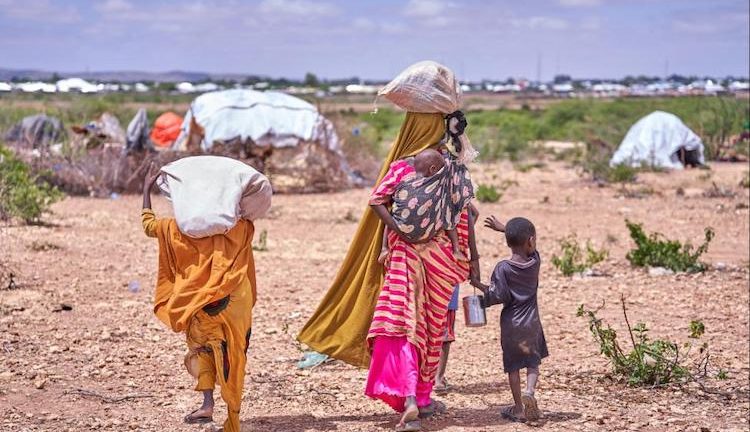By Lisa Vives, Global Information Network
NEW YORK | 29 November 2023 (IDN) — Rising sea levels, droughts and floods have exposed some of the failures of African countries to prioritize human rights and climate justice, resulting in negative outcomes for vulnerable communities. That was the view of Amnesty International, one of several groups monitoring a growing catastrophe across the continent, before a major Climate Conference from 30 November to 12 December at the Expo City in Dubai.
In Somalia, some 43,000 people died last year from drought, international agencies and the government reported. At least 15,700 people lost their lives to extreme weather disasters, according to the latest report from Carbon Brief, a UK-based website specializing in the science and policy of climate change, while another 4 million have been affected.
“It’s been a year of climate carnage in Africa,” proclaimed ReliefWeb, a humanitarian information service provided by the United Nations Office for the Coordination of Humanitarian Affairs (OCHA).
From flooding to intense heatwaves and drought, these devastating statistics represent a human catastrophe on an unprecedented scale which comes as the global community prepares to attend the United Nations Climate Change Conference—also known as COP28.
African leaders attending this year’s Conference were warned not to repeat mistakes made during the inaugural Africa Climate Summit (4-8 September 2023), where leaders adopted the Nairobi Declaration on Climate Change and Call to Action (Nairobi Declaration).
“While the Nairobi Declaration is a unified voice aimed at addressing Africa’s climate challenges, some of its proposals do not effectively combat the emissions that cause climate change or provide adequate support to those negatively affected by global warming,” said Tigere Chagutah, Amnesty International’s Regional Director for East and Southern Africa.
“The increasing intensity of droughts and floods, as well as rising sea-levels, has led to massive human rights violations on the continent,” added Samira Daoud, Amnesty’s Regional Director for West and Central Africa. “Despite this, African leaders failed to anchor the Nairobi Declaration firmly on human rights principles to both address and protect human rights as the climate changes.”
Nairobi Declaration
Some of the proposals in the Nairobi Declaration, such as those addressing carbon markets, have resulted in negative outcomes for vulnerable communities. Carbon markets have led to serious human rights violations, including cases of forced evictions in Africa, when communities have been displaced to make space for carbon offsetting projects, such as reforestation or afforestation initiatives on their lands.
By prioritizing carbon trading, said Chagutah, leaders of rich countries shifted the burden of reducing CO2 emissions to African countries, even though developed countries hold most responsibility for the climate crisis.”
African leaders at the gathering must also seek grants, rather than loans, to help reduce the debt burden on the continent and make it easier for countries to respond to the climate crisis.
A proposed global tax on carbon pollution also fell short, lacking in clarity regarding how it will operate in practice. This lack of clarity could potentially harm ordinary people by creating additional challenges for the most vulnerable groups in Africa, observed Amnesty. Such a tax could disproportionately impact many economically disadvantaged communities by increasing the cost of basic necessities like energy and food.
“At COP28, African leaders must demand that developed countries not only meet their existing commitments, including previous shortfalls, but also substantially increase their climate finance contributions,” Tigere Chagutah underscored. “They must promote just energy transition frameworks and demand environmentally sound technologies that prioritize the rights of rural communities as well as the urban poor.” [IDN-InDepthNews]
Photo: A Somali mother and her children displaced by flooding search for a place to take shelter among other families who have already found refuge on higher ground. Photo: IOM/ Ismail Abdihakim Ismail
IDN is the flagship agency of the Non-profit International Press Syndicate


